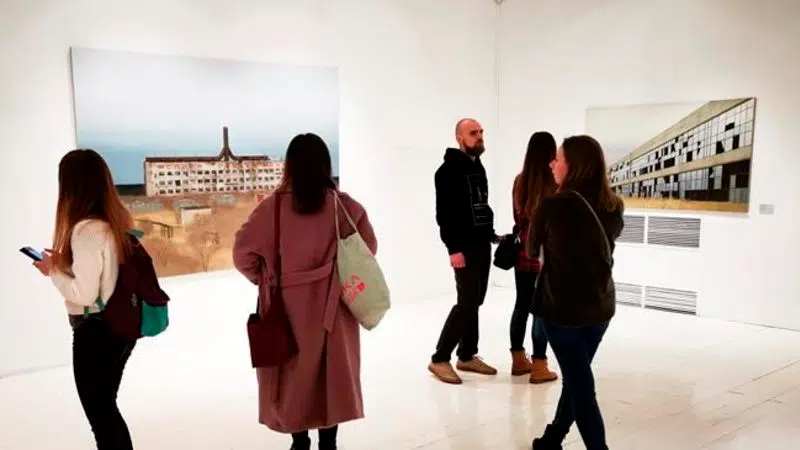
Artist probes Russia’s toxic legacy through family history
MOSCOW — Pavel Otdelnov recalls how as a child he saw his mother boil his parents’ bedding every day. His father worked in the factories of Dzerzhinsk, the centre of Soviet chemical manufacturing, and the chlorine and phosgene that yellowed the sheets seeped through protective gear into his skin.
“Dad was born in a workers’ camp and gave his entire life to chemical industries around Dzerzhinsk,” Otdelnov wrote in the notes for “Promzona”, a new exhibit at Moscow’s Museum of Modern Art that features his paintings of industrial ruins interspersed with objects from workers’ daily lives.
The artist’s huge, architecturally precise paintings of decayed factories in his hometown, some overgrown as nature reclaimed the land, show what he calls “the ruins of a Soviet mythology.” Many of the chemical plants, once a proud part of Soviet history, sit abandoned in a city fouled by toxic waste, the result of a utopian mythology which never translated into reality, least of all for its people.



